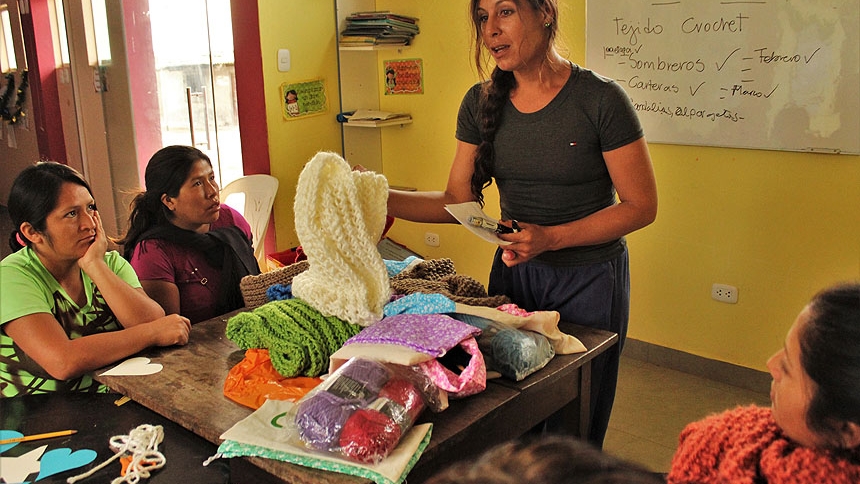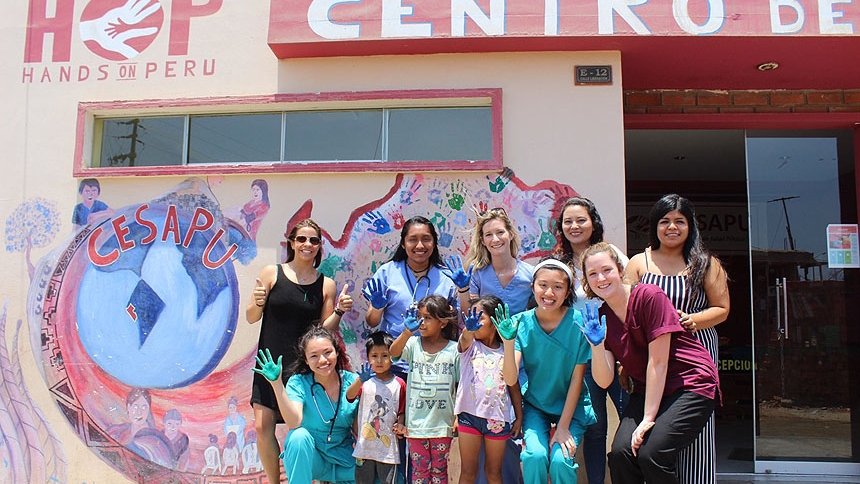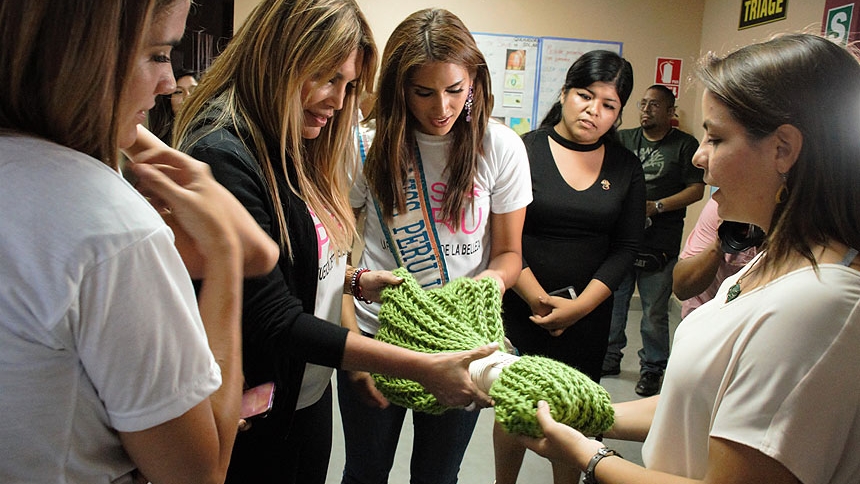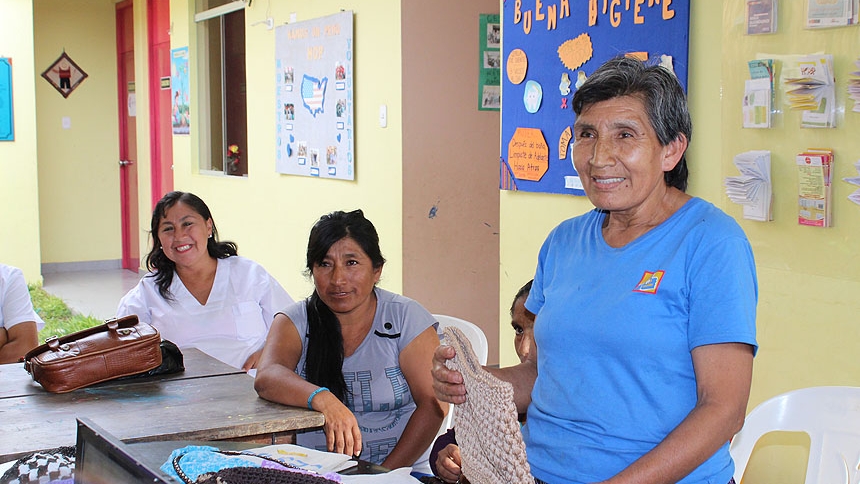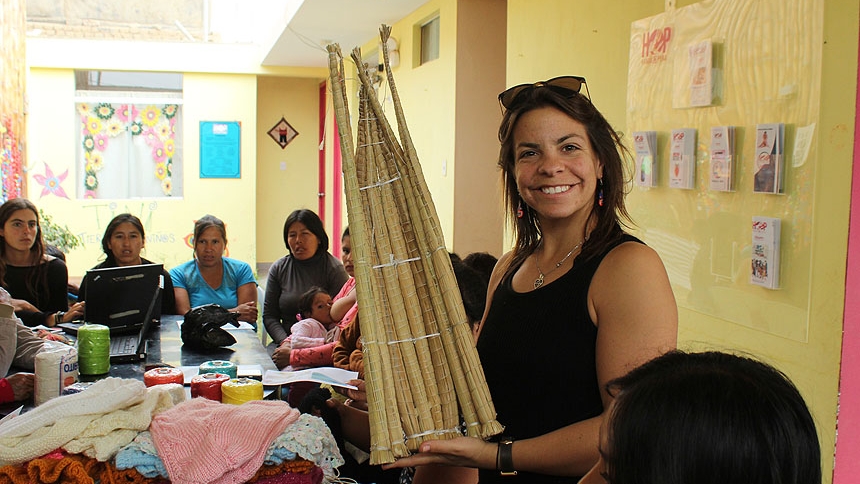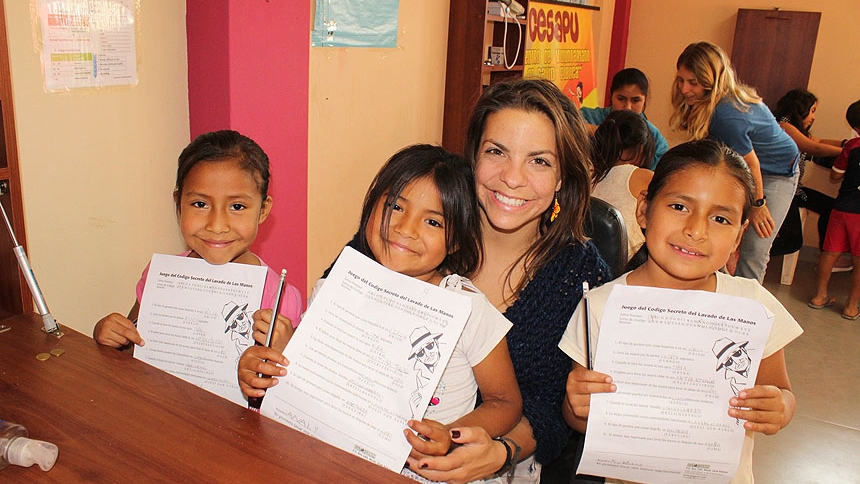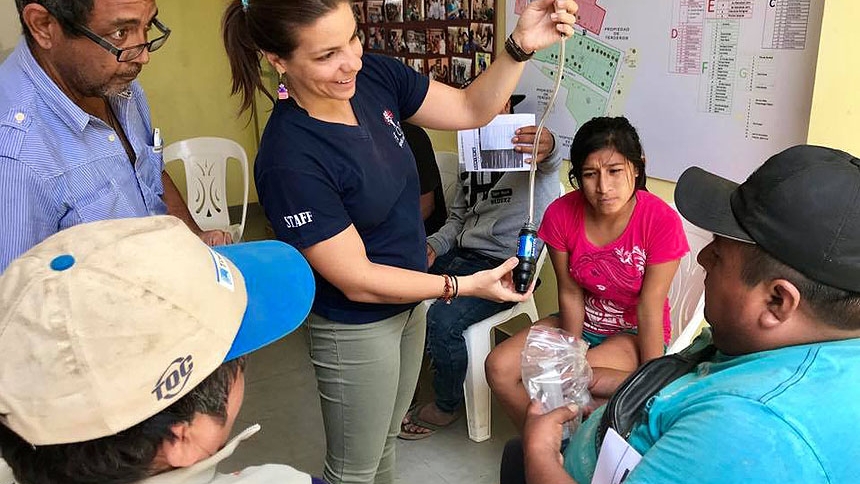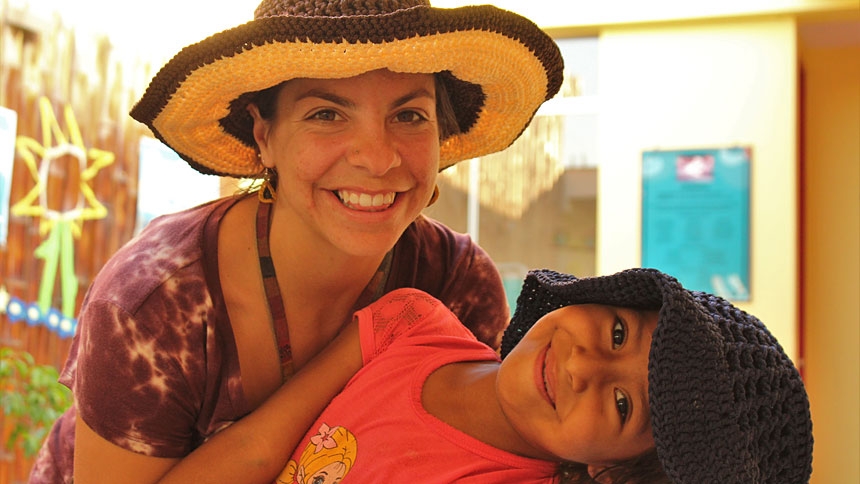
If there’s one person to blame for Katie Baric’s vocation, it’s her father. In fact, she’ll laugh and tell you it’s “all his fault.”
He was the one who took her on a mission trip to Honduras when she was 12. Together they worked in public health interventions such as building latrines and installing water filters.
“When you start something so soon in life, you can’t get it out of your heart,” she says.
Looking back, she calls subsequent mission trips to Honduras, Africa and Peru “passive learning.”
That learning took a more active turn after she graduated from college and went to the University of Pittsburgh to earn a master’s degree in public health. In 2013 the Cary native co-founded Hands on Peru.
HOP, as it’s known, is a nonprofit with an international commitment to improving access to medical care and quality education for disempowered people in Trujillo, Peru and its surrounding areas.
NC Catholics caught up with Baric to ask about HOP, her faith and her calling.
NC Catholics: You said that between the ages of 12 and 21 you took multiple mission trips. What did those teach you?
Katie Baric: That poverty is more than just an economic number. It’s your standard of living, your health and your education. It’s a very holistic view of poverty. And that, to me, speaks a lot because I realized that giving a family adequate sanitation and water is actually reducing their level of poverty. And I thought that was really cool. So that really inspired me.
NCC: When, and why, did you start Hands on Peru?
KB: In 2013 as a response to the deep inequities in the health system in Peru. I was a senior in college, and I started it because a woman in Peru asked me to be her partner after I was a volunteer there. I looked at my life and what I was passionate about and I thought, ‘Hey, this is an opportunity. Sure.’
NCC: How did it progress?
KB: Between 2013 and 2016 we tried to bridge that health equity gap with international volunteers. And we had health campaigns and education campaigns with passionate students from universities. Most of the universities we work with are in North Carolina. And then we said, ‘Wow this is amazing. We can do something even more sustainable.’ So we built our own health clinic in December of 2016.
NCC: Hands on Peru has nine community-based programs. Tell us about some of them.
KB: Public health in Peru is nonexistent. Prevention is nonexistent. People don’t go to a health clinic unless they are sick and suffering more than necessary. The idea of preventing disease is novel. We are trying to strengthen the preventative part of medicine, rather than the curative part.
Living Healthy is one of our cornerstone programs that focuses on disease prevention through screenings and education. When groups of volunteers from the USA visit us, we host large health campaigns designed to prevent and detect common illnesses like cervical cancer, diabetes, metabolic syndrome, anemia, and more. We have a doctor on staff who can give primary care consults, in order to prevent a disease from advancing. For example, treating a urinary tract infection before it turns into chronic kidney disease. We have a dentist who comes twice a week to give free and reduced-price dental care.
We also have a program called Hands to Build. It addresses basic water, sanitation and hygiene (WaSH) needs in the community. We collaborated with various organizations and universities to be able to meet these basic needs. We found that the water is highly contaminated, and now everyone has a water filter. This July – with a group of engineering students from France – we are going to be able to build six bathrooms – that’s adequate sanitation – for six families (52 people)!
Community health promotion is important too. For example, we go door-to-door, promoting good hygiene habits and reminding people the importance of hand washing as a method of disease prevention. We give them hand soap for free that they can refill with us for 20 cents to break that barrier of going out to buy soap. The children now know that when they first come into the clinic, they must wash their hands. So we do not only teach them what to do, but we also help them to practice it and make it a habit.
And then we have various interactive public health community programs. We have cooking classes and nutrition education for mothers, knitting classes, reproductive health classes for adolescent girls, recycling and social-emotional classes for children, and Zumba classes. We have a program for almost everyone in the community! Our goal in these programs is to inspire each individual to be their own agent of change.
NCC: And you’re into ‘merchandise’ now, too, right?
KB: We have a women’s empowerment program through knitting. The mothers – a group of 25 – have this brand – Chimuk Chic. They knit every Tuesday. They learned via YouTube. And now I am having these seeds of this social enterprise in my hands. The brand is copyrighted. The mother writes her name on the tag … you can go on our Facebook and see who she is, and buy this product to support the group.
NCC: How did you secure funding to start HOP and keep it going?
KB: Our volunteers pay HOP a program fee, which funded us from 2013 to 2016. So when we decided to build our own clinic in 2016, Hands on Peru had a small savings account. I came back to North Carolina and said, ‘There’s gotta be an extra $50,000 dollars laying around.’ (She laughs.) I had fundraising campaigns and by the grace of God we were able to raise enough money.
Now we fully own the clinic and the land that it’s on. A lot of our money comes from the U.S.A., whether private donations or small foundations’ donations or grants, and we also get some funding from Europe.
NCC: You’re Catholic. You went to St. Michael School and Cardinal Gibbons High School. Did your faith formation play a role in how you spend your time today?
KB: Definitely. It has been the cornerstone of my career. It placed love into me because Jesus Christ loved others. I have taken that love … and I am able to now give love out. I’ve prayed over and over again. I remember when I was in Honduras, I prayed to God saying, “Take me … I will be your hands.” I feel 100% confident that I am doing what I am supposed to be doing because I prayed about it so much.
NCC: You look so happy right now. Has it always been like this for you? Or were there challenges?
KB: If I didn’t have such a good team in Peru, maybe I would doubt. But I have a great team and they are all Peruvian. They all speak English. Every time I have a seedling of doubt, it’s quickly banished by this support that I feel from my community in the states and also from Peru.
NCC: What are your goals for the next five years?
KB: To build a second floor at the clinic. The kids need a place to study. We want to do a mobile clinic to get to communities that don’t have access. And we want to replicate the clinic, or at least replicate the programs, to have an even bigger impact.
NCC: How can people get involved?
KB: Our volunteer program is one of the best ways somebody can get directly immersed and involved. We work with universities. We have had about 85 volunteers from UNC - Chapel Hill. We’ve had 40 students from N.C. State and a total of 180 volunteers. Also … if there’s a doctor who wants to go on a mission trip or a nurse, I am the best place to receive them because I am there year round.
NCC: What does your family think of all of this?
KB: They are very supportive. My mom misses me, of course. But they have come to visit me. And they’ve seen the clinic.
NCC: When you aren’t working with the people of Hands on Peru, how do you spend your down time?
KB: Most days I am just thankful. I sit on the beach in Huanchaco. Or I am on my surfboard and I am thinking, ‘Wow I cannot believe this is my life.’
We are located right next to the Chan Chan ruins, the oldest mud brick city from the Chimu civilization. Huan Chaco is rich in culture and history … it’s considered the birthplace of surfing. They still have reed fishing boats. I am lucky that we chose to build the clinic in such a beautiful town.
* Interview edited for space and clarity.


